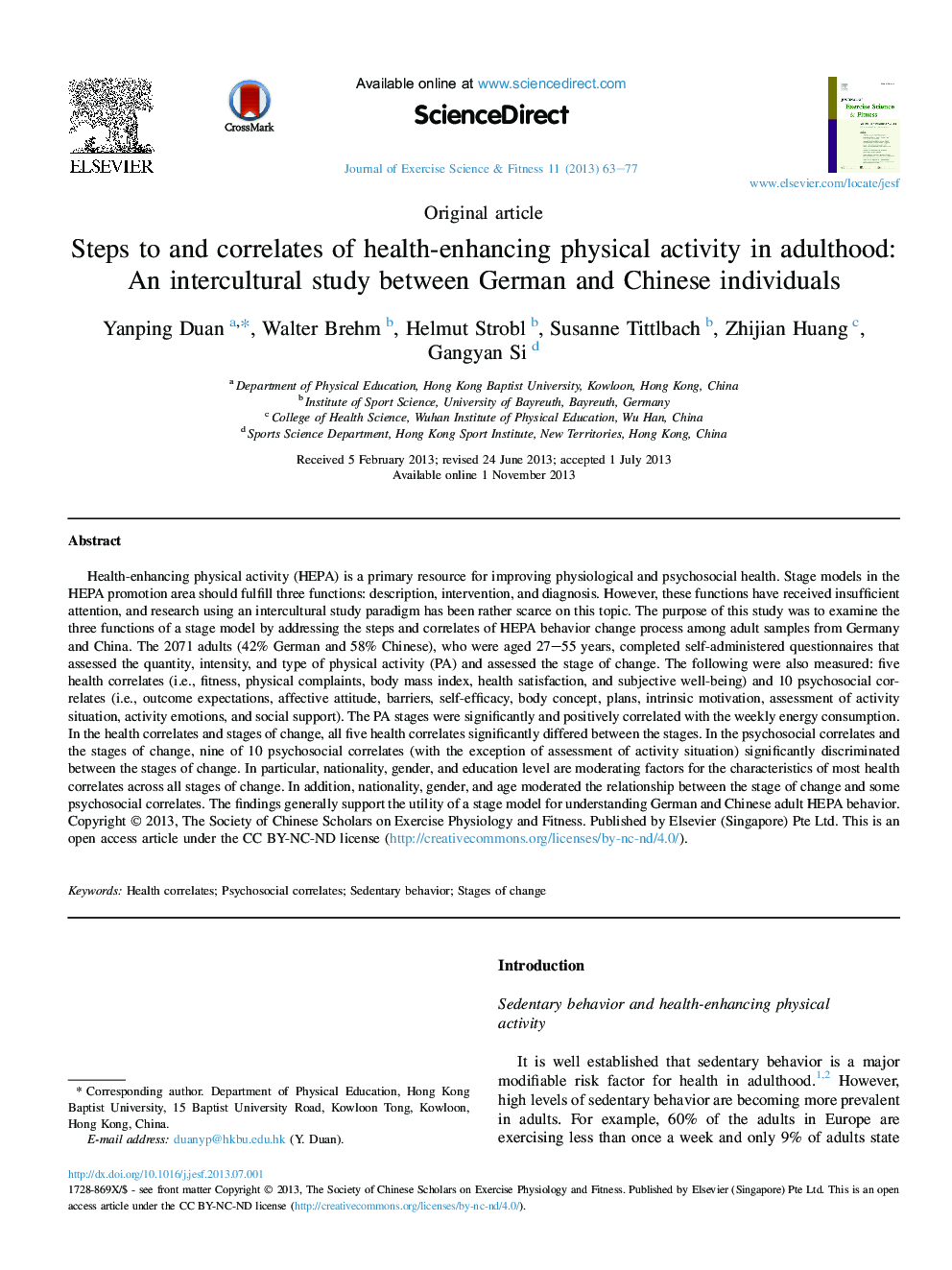| کد مقاله | کد نشریه | سال انتشار | مقاله انگلیسی | نسخه تمام متن |
|---|---|---|---|---|
| 2739623 | 1148431 | 2013 | 15 صفحه PDF | دانلود رایگان |

Health-enhancing physical activity (HEPA) is a primary resource for improving physiological and psychosocial health. Stage models in the HEPA promotion area should fulfill three functions: description, intervention, and diagnosis. However, these functions have received insufficient attention, and research using an intercultural study paradigm has been rather scarce on this topic. The purpose of this study was to examine the three functions of a stage model by addressing the steps and correlates of HEPA behavior change process among adult samples from Germany and China. The 2071 adults (42% German and 58% Chinese), who were aged 27–55 years, completed self-administered questionnaires that assessed the quantity, intensity, and type of physical activity (PA) and assessed the stage of change. The following were also measured: five health correlates (i.e., fitness, physical complaints, body mass index, health satisfaction, and subjective well-being) and 10 psychosocial correlates (i.e., outcome expectations, affective attitude, barriers, self-efficacy, body concept, plans, intrinsic motivation, assessment of activity situation, activity emotions, and social support). The PA stages were significantly and positively correlated with the weekly energy consumption. In the health correlates and stages of change, all five health correlates significantly differed between the stages. In the psychosocial correlates and the stages of change, nine of 10 psychosocial correlates (with the exception of assessment of activity situation) significantly discriminated between the stages of change. In particular, nationality, gender, and education level are moderating factors for the characteristics of most health correlates across all stages of change. In addition, nationality, gender, and age moderated the relationship between the stage of change and some psychosocial correlates. The findings generally support the utility of a stage model for understanding German and Chinese adult HEPA behavior.
Journal: Journal of Exercise Science & Fitness - Volume 11, Issue 2, December 2013, Pages 63–77